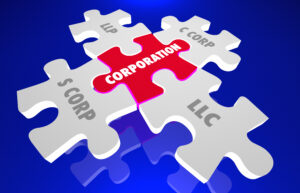Tax Scam Bill Reaches More Than $20 Million
Do you know where your tax return is? Are you sure that next year’s tax return is safe? It’s clear that the IRS does not have a strong prevention plan in place to stop would-be tax scammers from getting to your personal information and then using it to steal your tax return. According to a recent report from the top tax agency, the Treasury Inspector General for Tax Administration (TIGTA) has received about 600,000 contacts since October 2013 in regards to tax scams. The TIGTA also noted that there have already been thousands of victims who have collectively lost more than $20 million in that time.
According to the IRS, most scammers pose as employees of the IRS and go after those that are most vulnerable, especially the elderly. However, their threatening tactics are clear-cut signs that they are not with the IRS. The agency will never call anyone and ask for personal information over the phone. The IRS will also always send a letter in the mail first, before contacting you by phone.
However, as the number of scams increases so do the scammers’ methods and abilities. Every year tax scammers get more sophisticated in their efforts. This year the IRS found that scammers have started to change phone number caller IDs in order to make it look as though the IRS is actually calling. Additionally, many scammers are starting to learn more about their victims even before they call, so they can appear to be even more legit.
If you think anyone has tried to scam you out of your tax return then the IRS suggests calling the following number: 1-800-829-1040.
Tax S-corporation
Saving Taxes with an S Corporation An S corporation election allows the shareholders to preserve the benefit of limited liability for the corporate form while at the same time being treated as partners for federal income tax purposes. Ever wondered why so many small businesses operate as an S corporation? Simple. An S corporation saves…
Sec1045 Partnerships
Sec1045 Partnerships This document contains final regulations relating to the application of section 1045 of the Internal Revenue Code (Code) to partnerships and their partners. These regulations provide rules regarding the deferral of gain on a partnership’s sale of qualified small business stock (QSB stock) and a partner’s sale of QSB stock distributed by a…
Sec179 Businessequipment
Updated: 11/12/10 Most new business equipment can be either depreciated over its useful life or expensed immediately under Internal Revenue Code Section 179. The maximum deduction is based on the following schedule for the date in which the tax year begins. Each 1040, whether Single or Joint, is limited to one maximum. 179 expenses passed…
Sec1244 Small Business Stock Sales
Sec1244 Small Business Stock Sales Section 1244 of the Internal Revenue Code, the small business stock provision, was enacted to allow shareholders of domestic small business corporations to deduct as ordinary losses, losses sustained when they dispose of their small business stock. In order to receive this beneficial treatment, the Code prescribes specific requirements for:…



